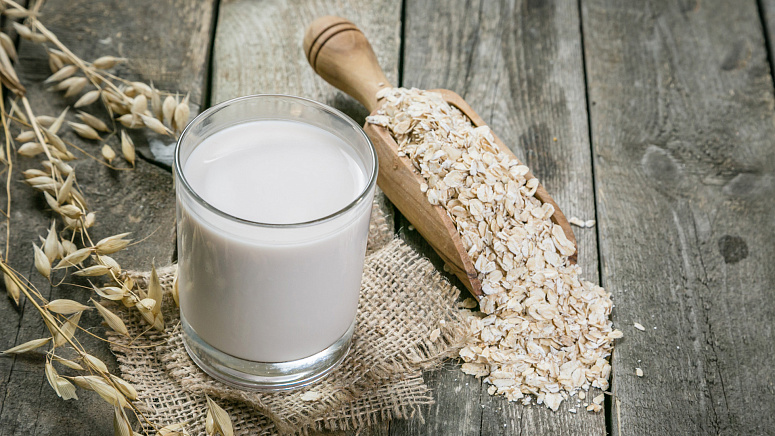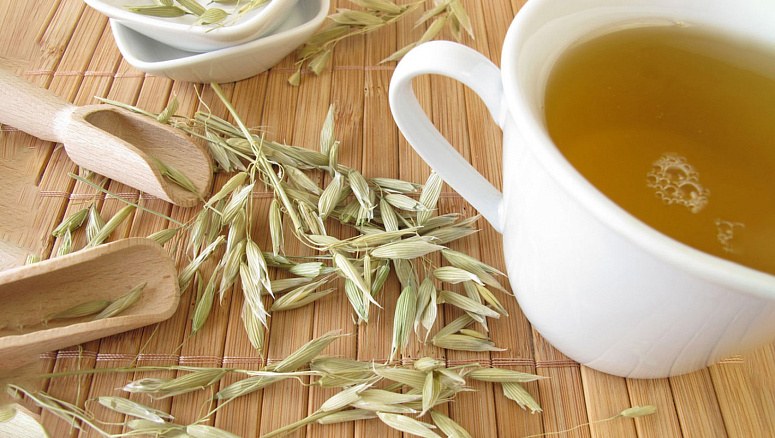The liver is universally recognized as a vital organ that serves as the body’s natural filtration system. Over time, like any filter, it can accumulate impurities and require periodic cleansing. However, unlike other organs, the liver lacks nerve endings, rendering it incapable of signalling distress through pain or discomfort when it becomes overburdened. Consequently, it is essential to take a proactive approach by incorporating a gentle detoxification routine once or twice a year, ideally during spring or early autumn, to ensure the liver functions optimally and to support overall health. For a safe and effective detox, an oat-based decoction is an ideal solution, offering a mild yet thorough cleansing process.
The role of oats in liver detoxification
Oats are renowned not only for their remarkable ability to cleanse the liver but also for their comprehensive benefits to overall health and vitality. In modern times, oat decoctions are recognized as part of traditional healing practices and are frequently suggested as adjunctive therapies. Yet, in earlier periods, before the advent of today’s vast array of synthetic medications, oats were esteemed as a dependable and universally accessible natural remedy, cherished for their potent efficacy and remarkable adaptability.
This extraordinary grain is a powerhouse of essential nutrients, including antioxidants such as vitamins A and E, which play a crucial role in preserving the body's vitality, supporting vascular health, enhancing vision, and maintaining skin integrity. It is also rich in B vitamins, known for their beneficial effects on the nervous system, as well as vitamin K, calcium, silicon, phosphorus, magnesium, zinc, and the indispensable amino acid lysine. Lysine is integral to the structure of enzymes and hormones that govern metabolic processes. Moreover, the bioactive compounds present in oats are absorbed into the bloodstream, where they actively contribute to the repair and regeneration of hepatocytes – the functional cells of the liver. This is merely a glimpse into the extensive nutritional profile of oats.
Owing to its widespread availability and remarkable nutritional profile, oats have been a staple in households for centuries, with oatmeal flakes being a common sight in kitchens around the world. However, it is important to note that there is a significant difference in the chemical composition between processed flakes and whole grains. For this reason, to create a truly restorative drink, it is crucial to use oats in their natural, unprocessed form, still encased in their husks. Rolled oats, and particularly instant oatmeal flakes, lack the necessary properties to deliver any meaningful therapeutic benefits.
Recipes for oat-based liver cleansing decoction
The internet is teeming with countless recipes and guidelines on preparing oats for liver detoxification. Yet, beneath this seemingly endless variety, the core principles are distilled into a handful of straightforward and accessible techniques.
Method №1: Gently simmer 1 cup of oats in 1.5 litres of water over low heat for 20 minutes. Once done, remove from the heat, wrap the pot to retain warmth, and allow the mixture to infuse for 8-12 hours.
Method №2: Steep the oats in a thermos – place 1 cup of whole grains inside and cover with 1 litre of boiling water. Seal the thermos tightly and steep the mixture for 8-12 hours.
In either method, the therapeutic effects of this drink will be significantly more pronounced if you adhere to a few straightforward yet essential practices:
- For therapeutic use, it is essential to purchase whole oat groats – oats with hulls. These can be sourced from pharmacies, health food retailers, or local markets. It is crucial, however, to steer clear of oats meant for animal consumption, as they are often treated with chemical agents or supplemented with additives unsuitable for human health.
- Prior to brewing the decoction, it is advisable to thoroughly wash the grains or soak them for a few hours, followed by drying.
- For optimal freshness, the prepared drink should be stored in the refrigerator and consumed within 2 days.
- For optimal benefits, it is advised to consume the decoction for a minimum of two weeks, with a full month of use yielding more pronounced and lasting results.
- Throughout the treatment period, it is crucial to steer clear of heavy, processed, and unhealthy foods, particularly alcohol, to reduce the strain on the liver and provide it with the opportunity to heal and rejuvenate.
- Cleaning the tongue off coating upon waking – tongue scraping - can be highly beneficial. Interestingly, the amount of the coating can act as a gauge for the decoction's impact. During the first few days of use, the body will undergo a deep cleansing process, leading to a more pronounced coating on the tongue. As the treatment progresses, this coating will gradually lessen, reflecting the body's detoxification and healing.
- It is crucial to prioritize regular intestinal cleansing, as this is the primary route through which the liver eliminates toxins. The faster toxins are expelled from the body, the more beneficial it is. Dietary fiber serves as an excellent aid in facilitating this process.
Guidelines for consuming the decoction
The information in this article offers general guidelines only. Prior to incorporating the decoction into your routine, it is imperative to seek advice from a qualified healthcare practitioner.
Once the decoction has steeped, strain it and drink it warm, in servings of 100-150 ml, approximately 20 minutes before eating. Ensuring the drink is warm is essential, so gently reheat it or mix it with hot water before drinking.
The beverage can be enhanced with honey and a splash of lemon juice. Certain recipes recommend steeping oats alongside rose hips or blending (mixing) the decoction with a rose hip infusion prior to drinking. These variations are entirely permissible, though the oat-based drink boasts a naturally pleasant flavour and can be enjoyed on its own without any additions.
Contraindications
Similar to any therapeutic substance, oat decoction comes with specific contraindications that should be considered.
Do not take this drink if you have any of the following conditions:
- pregnancy, as the body is occupied with another very important task, making oat concoction fairly undesirable at the present time;
- for individuals with gallstones oat consumption may be problematic. The increased bile production triggered by oats can lead to the displacement of gallstones, resulting in a blockage of the bile ducts;
- individuals with diabetes should be mindful of oat consumption, as their high carbohydrate content can raise blood glucose levels.
It's also crucial to remember that even a seemingly simple liver cleanse, like the one using oat decoction, is a powerful way to eliminate built-up toxins. Therefore, pay close attention to your overall health and consider it carefully before starting any detoxification program.
Pay attention to your health! Om.

